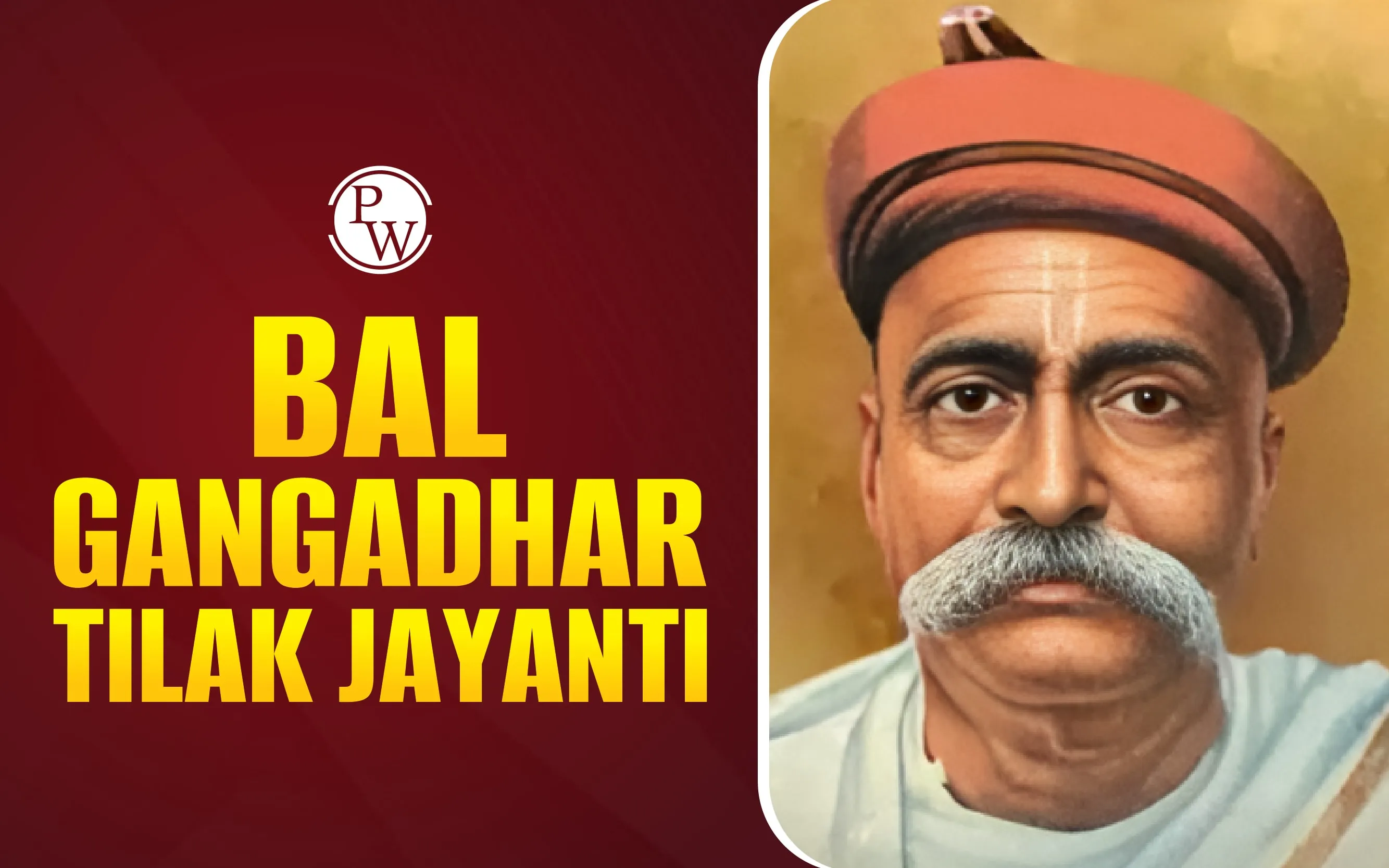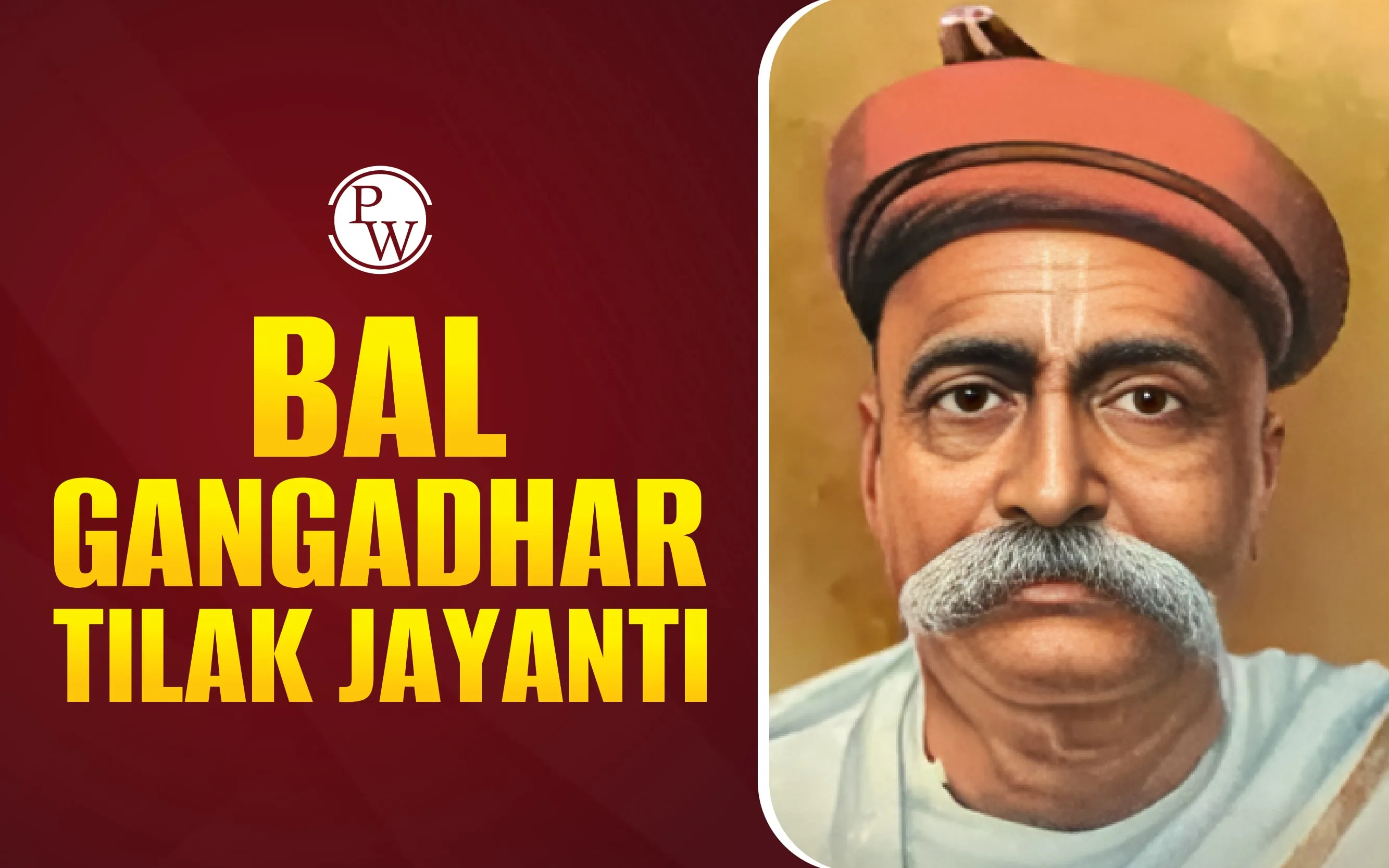

Bal Gangadhar Tilak was one of the most important leaders in India's struggle for freedom. He was a great scholar, a journalist, and an activist who bravely fought against British rule. His efforts to achieve self-rule (Swaraj) for India were legendary.
He is famously known by the title 'Lokmanya'. This title means being accepted by the people as their leader. Even Mahatma Gandhi called him 'The Maker of Modern India'. Bal Gangadhar Tilak was one of the first people to turn the fight for independence into a mass movement.
Bal Gangadhar Tilak Overview
Here is an overview of Bal Gangadhar Tilak, one of the most influential leaders of the Indian independence movement. He was a strong nationalist who brought the idea of Swaraj (self-rule) to the common people and earned the title ‘Lokmanya’ for his immense popularity and leadership.
|
Bal Gangadhar Tilak Overview |
|
|
Category |
Details |
|
Full Name |
Keshav Gangadhar Tilak |
|
Born |
July 23, 1856 |
|
Birthplace |
Ratnagiri, Maharashtra (then Bombay Presidency) |
|
Died |
August 1, 1920 (at age 64) |
|
Popular Title(s) |
Lokmanya (Meaning: Accepted by the people as their leader) |
|
"The Father of Indian Unrest" (Given by the British) |
|
|
Famous Slogan |
"Swaraj is my birthright, and I shall have it." |
|
Education |
Bachelor of Arts (Maths & Sanskrit); Law Degree (L.L.B.) |
|
Major Profession |
Teacher, Journalist, Freedom Fighter |
|
Key Role in Politics |
Leader of the 'Extremist' group in the Indian National Congress. |
|
Part of the famous Lal-Bal-Pal trio (with Lala Lajpat Rai and Bipin Chandra Pal). |
|
|
Key Movements |
Home Rule League (Started in 1916 for self-government). |
|
Swadeshi and Boycott Movements (Promoting Indian goods). |
|
|
Newspapers |
Kesari (Marathi) and Mahratta (English) |
|
Cultural Contributions |
Popularized public celebrations of Ganesh Chaturthi and Shivaji Jayanti to unite people. |
|
Major Book |
Gita Rahasya (Written while he was in jail in Mandalay, Burma). |
|
Legacy |
Mahatma Gandhi called him "The Maker of Modern India." |
Early Life and Education of Bal Gangadhar Tilak
Bal Gangadhar Tilak was born on July 23, 1856. His birthplace was Ratnagiri in Maharashtra. His birth name was Keshav Gangadhar Tilak.
His family belonged to a Marathi Hindu Brahmin community. His father, Gangadhar Tilak, was a school teacher and a well-known expert in Sanskrit.
Tilak was excellent in his studies. He was naturally good at Mathematics and Sanskrit. He received his Bachelor of Arts degree in Mathematics from Deccan College in Pune in 1877. After that, he studied law and earned his degree from the University of Bombay (now Mumbai) in 1879.
A Career in Journalism and Politics
After finishing his education, Tilak decided to become a teacher. He believed that the education system under the British was not good for Indian students.
In 1880, he helped to start the New English School in Pune. This school aimed to give young Indians an education that respected Indian culture.
To spread his strong views on freedom and social change, Tilak started working as a journalist. He launched two influential newspapers:
-
Kesari (a weekly newspaper in the Marathi language)
-
Mahratta (a weekly newspaper in the English language)
Through these publications, he strongly voiced his belief that Indians should govern their own lives, not the British.
Lokmanya Tilak and the Fight for Swaraj
In 1890, Tilak joined the Indian National Congress. He strongly disagreed with the party's mild methods of asking the British for small changes. He quickly became a key part of the party's "extremist" group. He, along with Lala Lajpat Rai and Bipin Chandra Pal, formed a famous trio known as 'Lal-Bal-Pal'.
He worked hard to unite the common people. He revived and made popular public celebrations of festivals like Ganesh Chaturthi and Shivaji Jayanti. He used these events to encourage a feeling of nationalism and unity among people.
His fiery speeches and written words often got him into trouble with the British government. His strong stand for India's rights led British authorities to famously call him "The Father of Indian Unrest". He was jailed multiple times for publishing articles that criticized the colonial rulers.
In 1908, he was sentenced to six years in jail and was sent to Mandalay in Burma. While in prison, he used his time to write a deep commentary on the Bhagavad Gita. This book is known as 'Gita Rahasya'.
The Home Rule Movement and Tilak's Last Years
Tilak was released from the Mandalay prison in 1914. Even though his health was not good, he immediately returned to politics.
In 1916, he worked with Annie Besant to start the Indian Home Rule League. The main goal of this group was to demand Swaraj, or self-government, for India.
It was during this movement that he gave his most famous and powerful slogan: "Swaraj (Self-Rule) is my birthright, and I shall have it". This statement became a rallying cry for the freedom movement.
Also in 1916, he helped sign the Lucknow Pact with Muhammad Ali Jinnah. This was a major step that united Hindus and Muslims in their demand for freedom.
Bal Gangadhar Tilak died on August 1, 1920, in Bombay (now Mumbai). His death happened just before a new era of the freedom struggle began with Mahatma Gandhi.
